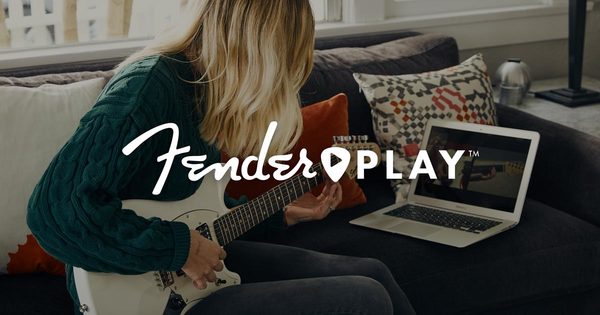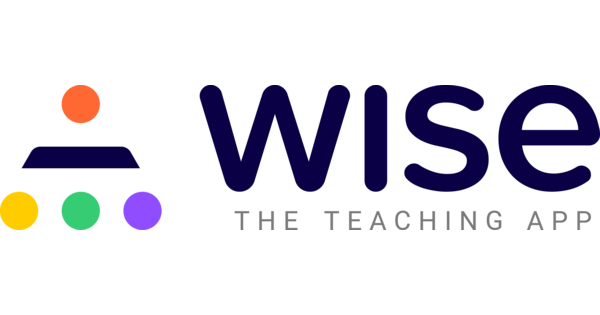Music education transformed overnight when digital platforms emerged. Traditional conservatories and in-person lessons dominated for centuries until technology shifted everything. Now, music educators face exciting opportunities to reach students worldwide while building sustainable online businesses.
The shift happens faster than most instructors expect. Students want flexible learning that fits busy schedules while maintaining quality instruction. Smart educators adapt by choosing platforms that support both teaching excellence and business growth.
Beginner-Friendly Online Music Platforms
1. Yousician
Yousician uses gaming elements to teach basic music skills. Students learn guitar, piano, bass, and ukulele through interactive exercises that feel like playing games.

The platform provides instant feedback when students play their instruments. Built-in listening technology detects pitch accuracy and rhythm timing. Progress tracking keeps learners motivated with badges and achievement levels.
2. Simply Piano
Simply Piano focuses exclusively on piano instruction for beginners. The app listens to acoustic piano playing and provides real-time corrections.

Short lessons suit busy schedules perfectly. Students practice popular songs across multiple genres while building fundamental skills. The interface stays clean and uncluttered for easy navigation.
3. Fender Play
Fender created this platform specifically for guitar, bass, and ukulele players. Step-by-step video lessons guide students through proper technique development.

Style-specific tracks teach rock, blues, folk, and country approaches. Practice tools include chord charts, metronomes, and backing loops. The curriculum builds systematically from basic chords to complete songs.
4. MasterClass
MasterClass features celebrity musicians teaching their signature techniques. Students learn from legends like Herbie Hancock, Christina Aguilera, and Yo-Yo Ma through cinematic video productions.

Each class covers performance, songwriting, and creative process insights. Production quality exceeds typical online courses with professional lighting and multiple camera angles. Lessons inspire students while teaching practical skills.
5. Coursera
Coursera partners with prestigious universities to deliver academic music courses. Berklee College of Music and Yale provide structured curricula with university-level rigor.

Students earn certificates upon completion of course requirements. Flexible deadlines allow self-paced learning while maintaining academic standards. Course content covers music theory, history, and composition fundamentals.
When to Recommend Each Platform To Your Students
Skill Level
Absolute beginners thrive with gamified platforms like Yousician. Visual feedback and achievement systems keep motivation high during early learning phases.
Intermediate students benefit from structured programs like Fender Play. Technical skill development requires systematic progression through increasingly complex material. Advanced players gain insights from MasterClass celebrity instructors who share professional techniques.
Learning Style
Visual learners prefer platforms with clear video demonstrations and graphic interfaces. Yousician and Simply Piano excel at visual feedback systems. Auditory learners succeed with platforms emphasizing listening skills and musical ear development.
Kinesthetic learners need hands-on practice with immediate feedback. Apps that listen to playing and provide corrections work best. Academic learners prefer university-backed courses with theoretical foundations.
Budget Considerations
Free tiers exist on most beginner platforms but limit access to premium features. Subscription costs range from $10 monthly for basic apps to $39 monthly for comprehensive platforms.
One-time course purchases on Udemy cost $50-200 but provide lifetime access. MasterClass requires annual subscriptions around $180 but includes access to all courses across disciplines.
Professional Development Platforms For Music Educators
1. Berklee
Berkle Online extends the prestigious college's reach through digital courses. Accredited programs offer certificates and degrees in music production, songwriting, and performance.

Faculty includes industry professionals with extensive recording and touring experience. Coursework maintains rigorous academic standards while providing practical career preparation. Students access comprehensive resources including sheet music libraries and interactive assignments.
2. ArtistWorks
ArtistWorks offers video exchange learning where students submit recordings for instructor feedback. World-class teachers review submissions and provide personalized guidance.

The platform houses extensive video libraries organized by skill level and musical style. Students learn at their own pace while receiving professional input on their development. Monthly subscriptions provide unlimited access to all content and feedback opportunities.
3. Forte
Forte specializes in music theory and composition instruction for serious students. Advanced coursework covers harmony, counterpoint, and analytical techniques used in classical and contemporary music.

Interactive tools help students practice ear training and sight-reading skills. Assignments include composition projects with detailed instructor feedback. The platform serves conservatory-level students preparing for advanced study or professional careers.
Best Course Creation Platforms For Music Teachers And Coaches
1. Teachable
Teachable provides comprehensive tools for building branded online schools. Music instructors create custom course websites with their own domain names and visual branding.

Built-in marketing features include email campaigns, affiliate programs, and sales page builders. Student management tools track progress and enable direct communication. Revenue goes directly to instructors minus small platform fees.
2. Thinkific
Thinkific offers similar course creation capabilities with strong customization options. Drag-and-drop course builders require no technical skills while providing professional results.

The platform includes student community features for peer interaction and support. Instructors access detailed analytics about student engagement and completion rates. Integration options connect with popular marketing and payment tools.
3. Udemy
Udemy provides access to millions of potential students through its established marketplace. Music instructors upload courses without upfront costs and benefit from platform marketing.

Course pricing gets controlled by Udemy's frequent sales and promotions. Revenue sharing varies but can reach 50% or higher depending on how students find courses. Instructors sacrifice control for access to large audiences.
4. Skillshare
Skillshare operates on subscription models where instructors earn based on student watch time. Short, project-based classes work better than comprehensive courses on this platform.

Community features encourage project sharing and peer feedback. Revenue comes from subscription pools rather than direct course sales. The format suits creative skills instruction more than technical training.
5. WordPress/Self-Hosted Sites
Self-hosted WordPress sites offer complete control over content, pricing, and student data. Plugins like LearnDash transform websites into full learning management systems.
Technical knowledge requirements increase significantly compared to hosted platforms. Instructors handle all aspects including security, backups, and marketing. Higher profit margins offset increased responsibility and complexity.
Music School Management And Teaching Platforms
1. My Music Staff
My Music Staff combines student management with lesson scheduling and billing features. Music schools track attendance, payments, and student progress through unified dashboards.

Communication tools connect instructors, students, and parents through messaging systems. Automated billing reduces administrative workload while ensuring consistent payment collection. Reporting features help schools analyze business performance and student outcomes.
2. Wise LMS
Wise LMS focuses specifically on music education institutions. The platform manages multiple instructors, varied course offerings, and complex scheduling requirements.

Integration with popular music software enhances the learning experience. Students access practice rooms, instrument rentals, and performance opportunities through the platform. Administrative tools handle enrollment, grading, and certification processes.
3. Music First
Music First provides cloud-based music education software for schools and private instructors. Digital audio workstations, notation software, and theory tools integrate into cohesive learning environments.

Collaborative features allow ensemble work in virtual spaces. Assessment tools help instructors evaluate student progress across multiple musical skills. The platform scales from individual teachers to large institutional deployments.
4. Wiingy
Wiingy is an online tutoring platform offering personalized 1-on-1 lessons across subjects like music (vocals, guitar, piano), language learning, STEM and more. The platform connects students with expert tutors globally, providing flexible scheduling, affordable pricing, and tools for easy lesson management.

Wiingy operates on a pay-as-you-go model, making it convenient and risk-free for students. Teachers also benefit from demo setup assistance and access to pre-screened students, making the process simpler and more efficient.
How To Choose The Right Online Platform For Your Music Teaching Goals
Student vs Instructor Needs Assessment
Teaching goals determine platform selection more than student preferences alone. Instructors focused on building personal brands need ownership of student relationships and data.
Revenue requirements influence platform choice significantly. Marketplaces like Udemy provide quick access to students but limit pricing control. Self-hosted solutions maximize profits but require marketing expertise.
Budget Considerations And ROI Analysis
Monthly platform fees add up quickly for new instructors with limited student bases. Free options like YouTube provide exposure but lack monetization tools and professional credibility.
Calculate break-even points based on expected student numbers and pricing strategies. Higher-tier platforms justify costs only when student volume reaches sufficient levels. Start with affordable options and upgrade as businesses grow.
Technical Skill Requirements
Non-technical instructors succeed better with hosted platforms that handle maintenance and security. Teachable and Thinkific require minimal technical knowledge while providing professional results.
Self-hosted solutions demand ongoing technical management but offer unlimited customization. WordPress expertise becomes essential for troubleshooting and optimization. Consider long-term technical support needs before committing to complex solutions.
What's Next For Digital Music Education Technology?
AI Integration
Artificial intelligence transforms how students receive feedback and practice guidance. Smart algorithms analyze playing technique and suggest specific improvements based on individual weaknesses.
Personalized learning paths adapt to student progress rates and learning styles. AI tutors provide 24/7 support for practice questions and technique refinement. These technologies supplement rather than replace human instruction.
Virtual Reality Applications
VR technology creates immersive practice environments that simulate live performance situations. Students practice with virtual ensembles or perform in realistic concert halls from home.
Spatial audio helps students develop better listening skills and ensemble playing abilities. Virtual instruments provide access to expensive equipment without physical ownership. The technology remains expensive but costs decrease rapidly.
Enhanced Feedback Systems
Advanced audio analysis provides detailed feedback on intonation, rhythm, and expression. Students receive specific suggestions for improvement rather than general encouragement.
Video analysis helps correct posture and technique issues that audio alone cannot detect. Real-time feedback during practice sessions accelerates skill development significantly. Integration with popular practice apps makes these tools accessible to more students.
Recommended Sheet Music Stand
Conclusion
Online course platforms revolutionize how music educators build sustainable teaching businesses. Success depends on matching platform capabilities with specific teaching goals and technical comfort levels.
The future belongs to instructors who embrace technology while maintaining focus on quality education. Students benefit from increased access to expert instruction regardless of geographic location. Smart platform choices position music educators for long-term success in the digital education landscape.


